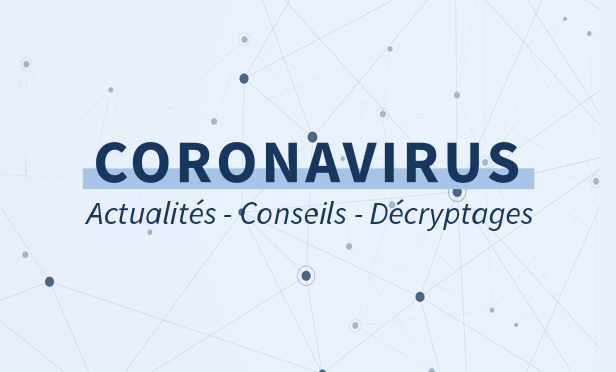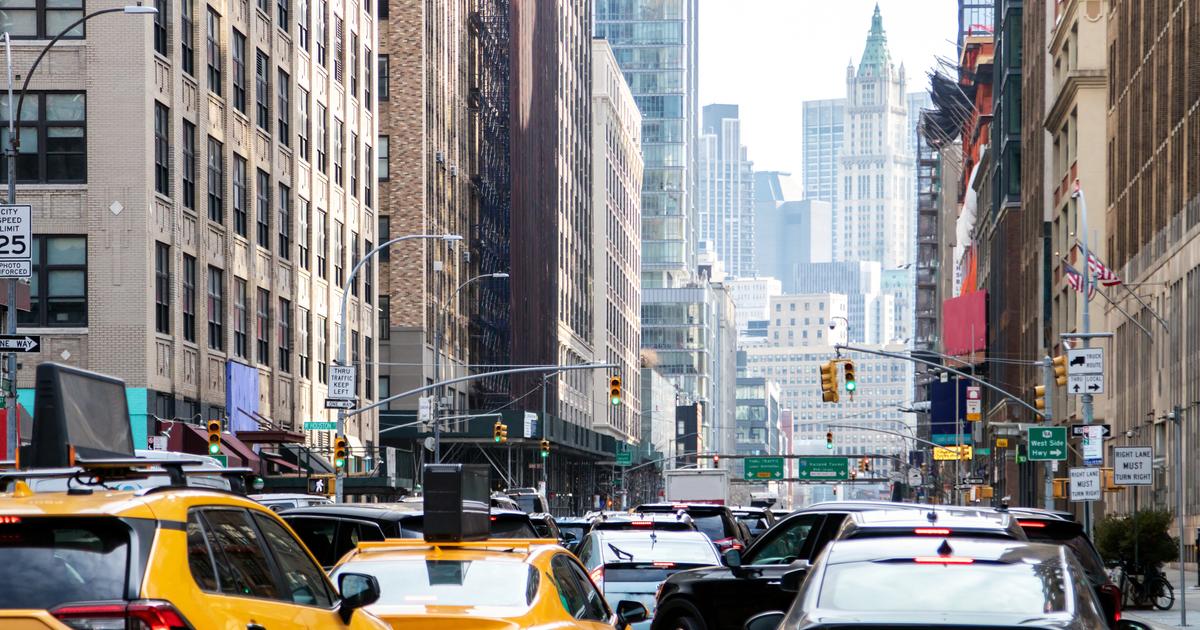Hello
To discover
New rules for the health pass from January 15: all the answers to your questions
All eyes are now on a
way out of the crisis
as France is expected to reach the peak of hospitalizations this week.
A less dangerous variant, a strengthened immunity, a treatment… the good news is piling up, but be careful not to relax your attention too soon.
The government, which is meeting a Health Defense Council on
Thursday ,
should extend the braking measures for at least another fifteen days while the entry into force of the
vaccination pass
is expected for the end of the week.
As for the return to “a normal life”, it is for the spring assures the boss of
Pfizer
in
Figaro
.
Good reading,
Camille Lestienne, journalist at
Le Figaro
1. Upturn
Despite reassuring hospitalization figures, health constraints still weigh on the French.
LOIC VENANCE / AFP
Hope.
Strange paradox which makes us evoke a way out of the crisis as the number of Covid cases explodes in France.
More than 430,000 cases counted yesterday after a record close to 465,000 the day before.
And yet, according to Professor Arnaud Fontanet, "
the worst-case scenario moves away
".
After that of the contaminations, the hospital peak of the Omicron wave should be reached in the very next few days.
For the first time since the start of the pandemic, the dynamics of critical care admissions no longer follow those of hospitalizations.
The new variant, in fact, confirms its lesser danger.
The drop in virulence is also reflected in the reduced length of stay in hospital by about a third for Omicron cases compared to those in Delta.
Another good news, immunity seems to be increasing.
However, uncertainties still reign: the duration of this protection and the possible appearance of new variants yet.
Read alsoCovid-19: are the most vaccinated countries those where there are “the most cases”?
The figures to remember in France
3,852
patients in critical care (-29 since the day before)
27,230
hospitalized patients (+704 since the day before)
436,167
new cases detected in 24 hours (against 361,719 last Wednesday)
231
deaths in 24 hours in hospital (127,869 dead since the start of the epidemic)
Source: Public Health France as of January 19
The doubt.
As the horizon clears, the vaccination pass should come into force by the end of the week after the decision on Friday of the Constitutional Council seized by elected opposition officials. An arrival at the wrong time which puts pressure on the executive.
"Those who were cataclysmic must not fall into the opposite excess,"
warns the Prime Minister's Office. The government defends its vaccine pass
, "which is useful even before its application since it has relaunched the number of first injections"
of vaccine recalls an adviser. But beware, according to a survey for the
JDD
, 58% of French people are in favor of the vaccination pass against 63% a few days ago.
And on January 15, thousands of them lost their health passes for not having taken their third dose on time.
Some for lack of information, others no longer finding any health justification.
According to a study published Tuesday by the Economic Analysis Council (CAE), an organization attached to Matignon, the health pass would have nevertheless made it possible to avoid 4000 deaths in France.
Read also“I am a plague victim”: the real life of the unvaccinated
Exasperation.
Despite the optimism displayed, the government does not intend to immediately relax the restrictions. Visibility, however, should be given during a Health Defense Council meeting this Thursday morning. The
status quo
would be maintained for another fortnight on gauges, nightclub closings and teleworking with an extension of the rule of three minimum days of teleworking. Restaurateurs and event professionals affected by the measures will benefit from an extension of aid. A little air seems necessary when the French are on the verge of a nervous breakdown, like the teachers who are preparing to demonstrate again this Thursday. But the dragging pandemic, the fluctuating health constraints, the uncertainty that undermines any project, feed the exasperation of many. Thus the wearing of a mask outdoors has again been made compulsory outside in places frequented in Ile-de-France or the race for the test for children.
Read alsoCyberattack: is the result of your Covid test safe on the SI-DEP platform?
2. A new vaccine
Novavax's Nuvaxovid should be available in France at the end of February.
DADO RUVIC / REUTERS
Delayed Nuvaxovid
.
Validated by the French High Authority for Health (HAS) last Friday, Novavax's new anti-Covid vaccine should not arrive before the end of February, the Ministry of Health said on Tuesday.
In addition, the volume of doses being limited, the new vaccine may not be administered in the city.
Based on the more classic technology of recombinant protein, the serum from the American laboratory could however convince people who refuse messenger RNA vaccines to get vaccinated.
Where is the vaccination?
Today, 94% of people over 18 have received at least one dose, but 12% of people over 80 are not vaccinated at all.
The numbers to remember
53.7 million
people received a first dose (79.6% of the population).
52.4 million
French people have a complete vaccination schedule (77.7% of the population).
32.7 million
booster doses administered.
Source: Ministry of Health as of January 19
Read alsoCovid-19: is it dangerous to be vaccinated while being asymptomatic?
3. The quote
The question is not whether this virus will disappear or not, it is: will we be able to resume normal life?
And I believe it.
Albert Bourla, CEO of Pfizer
Albert Bourla
, CEO of Pfizer since January 2019, confided in
Le Figaro
in an exclusive interview and announces that he has chosen France for a major investment, more than 520 million euros over five years.
"
We will soon be able to resume normal life
," he said.
We are well placed to achieve this in the spring, thanks to all the tools at our disposal: tests, very effective vaccines - even against Omicron, they protect against the risk of hospitalization and death - and the first treatments to be taken at the House.
The Paxlovid will arrive at the end of January in French pharmacies.
Prescribed to people at risk diagnosed positive, it will be a game-changer for our health systems, by unclogging hospitals
.”
Read alsoHow does Paxlovid, the anti-Covid pill work?
4. And elsewhere?
The Japanese health authorities have just announced record contamination figures for the Omicron virus.
ISSEI KATO / REUTERS
Japan.
Japan, which thought it was out of the woods, saw the number of cases explode with the arrival of Omicron in the archipelago.
"
For a country that is pursuing a Chinese-style 'zero Covid' strategy without saying so, with its eyes riveted on the number of cases, this surge in cases is a humiliation and a reason for panic,
" reports
Le Figaro
correspondent
Régis Arnaud. .
Blind to foreign experiences, Japan continues to apply isolation measures "
from another age of the pandemic
", running the risk of a dramatic labor shortage.
Austria.
“As planned, we will make vaccination compulsory at the beginning of February
” for those over 18, Austrian Chancellor Karl Nehammer said on Sunday at a press conference.
The Austrian government justifies this measure by the overcrowding of hospitals and its desire to achieve a vaccination rate of 90%, allowing, according to the advice of its experts, to achieve collective immunity.
Despite heated debates, the bill must be adopted this Thursday by Parliament.
Read alsoIn Dresden, German antivaccines occupy the ground
UK.
Boris Johnson announced the end of most restrictions in England on Wednesday.
From Thursday January 27, wearing a mask will no longer be legally compulsory, teleworking will no longer be officially recommended and a health pass will no longer be imposed for access to nightclubs and certain large gatherings.
The British Prime Minister also plans in March the end of isolation for positive cases.
Wales and Scotland have for their part announced a gradual exit from restrictions linked to the virus.
5. Passes and Masks
Sanitary pass.
The health pass is required to go to places of culture and leisure welcoming more than 50 people (cinema, theatre, concerts, festivals, etc.). The same applies to restaurants, bars, indoors and outdoors, in trains, coaches and planes, retirement homes and medical establishments. Places of worship are not affected. It is compulsory to go to shopping centers of more than 20,000 m², if the incidence rate of the department is greater than 200. Since September 30, young people aged 12 to 17 are also subject to it. As a reminder, the health pass is not a vaccination certificate. For it to be valid, you must either be fully vaccinated (with a booster dose no more than seven months after the last injection),either present a negative PCR or antigen test of less than 24 hours or proof of cure (a positive test) of more than 11 days and less than 6 months. It comes in the form of a QR code stored in the TousAntiCovid application or in paper format.
Read alsoSanitary pass: instructions for use, people concerned, sanctions… What you need to know about the law finally adopted
Wearing a mask
is compulsory in closed places subject to the health pass and outside when distancing is not possible (markets, queues, station platforms, etc.).
Since January 3, this obligation concerns children from 6 years old and no longer 11 years old.
The mask is compulsory in primary schools both outside and inside.
A certificate to travel.
Since July 1, Europeans can travel more easily within the continent thanks to certified proof of vaccination or negative tests collected in a single document.
In digital or paper format.
Please note, however, that each country may continue to apply specific rules.
Read alsoWhere can we travel?
Our map of open countries and restrictions for French tourists
6. The reflexes to keep
The virus is transmitted by droplets and aerosols.
The barrier gestures detailed by the Ministry of Health must be observed to protect themselves and others:
Wash your hands regularly or use hydroalcoholic gel
Cough or sneeze into the crease of your elbow
Use single-use tissues
Wear a mask in public spaces when the distance of two meters cannot be respected
Avoid touching your face
Air the rooms as often as possible, at least a few minutes every hour
Greet without shaking hands and stop kissing
7. What to do in case of symptoms?
The disease is most often manifested by cough, fever or feeling feverish, loss of smell and taste, fatigue.
If after a few days, you have trouble breathing or are out of breath, you should contact 15. The symptoms would be lighter with the Omicron variant, similar to those of a cold: sore throat, headache, runny nasal.
Read alsoCovid-19: what to do when you are a “contact case”?
In case of signs of the disease, the most important thing is to get tested. The test, PCR or antigen, remains free for those who have not been vaccinated on medical prescription or after having been identified as a contact case by Health Insurance. In the event of a positive result on a self-test, a confirmation PCR test is recommended. While waiting for the result, you must isolate yourself, wear a mask and prepare the list of people you could have infected. In the event that the test is positive,
isolation must last 7 days
from the first symptoms for vaccinated people,
10 days
for unvaccinated people. It can be broken on D+5 or D+7 respectively, if you have a negative test and you have had no symptoms for 48 hours.
Read alsoYou have just learned that you are positive for Covid-19, what to do?
See you next week.














